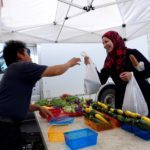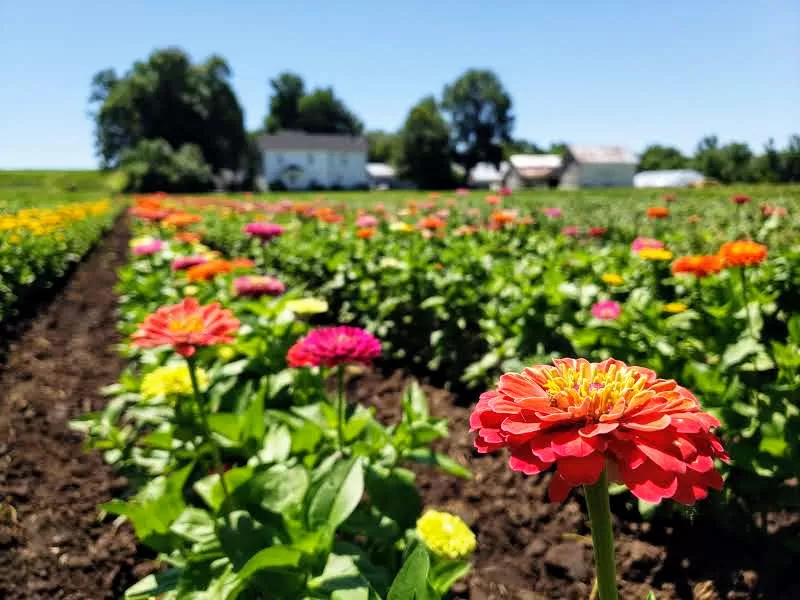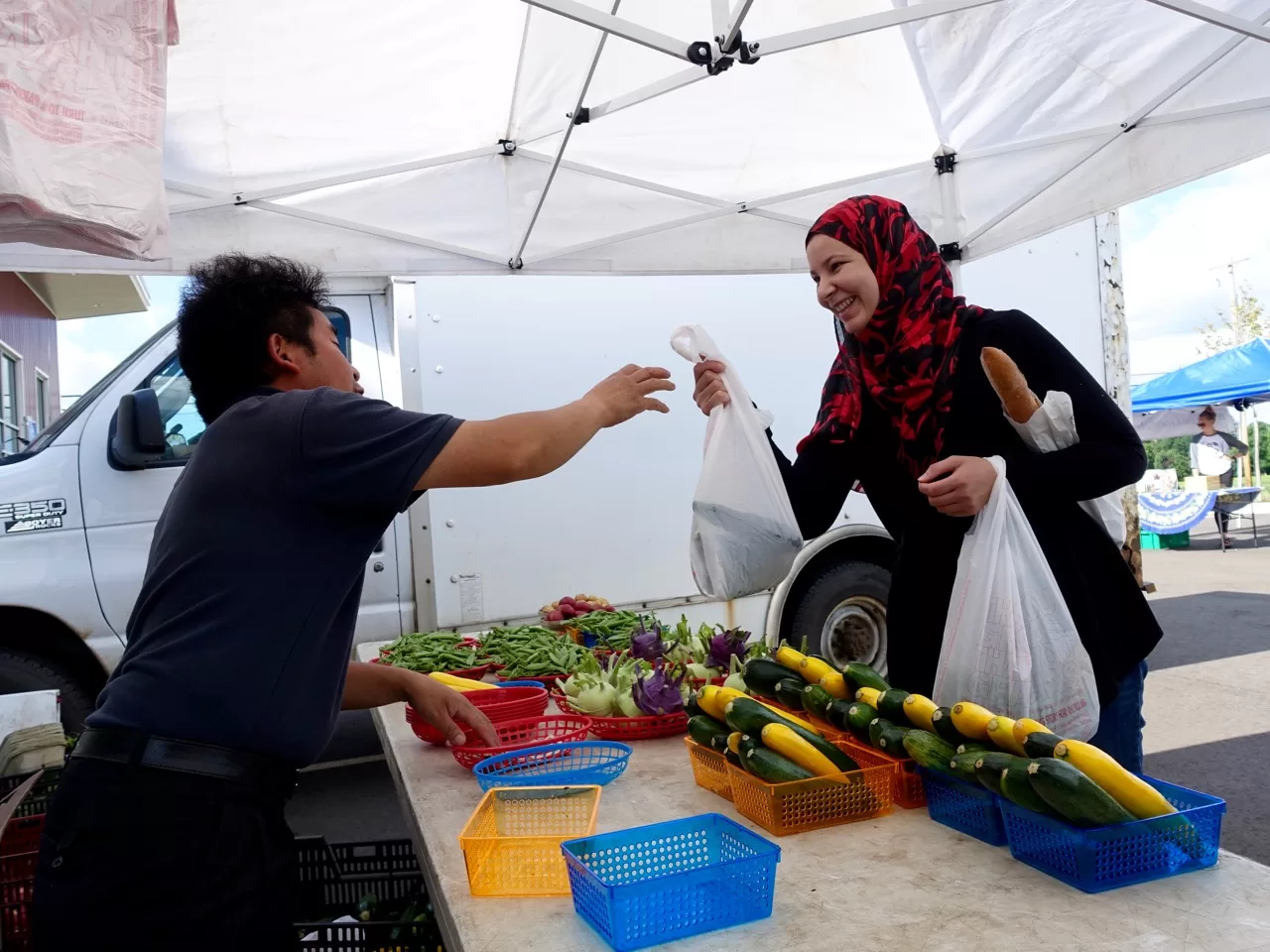|
What Does Community Wealth Mean To You?
What Does Community Wealth Mean to You?

Community wealth is created by people coming together and sharing their strengths in order to advance and lift up the entire community. It is something that has happened over and over in this country in both rural and urban settings, at Black churches and inside Jewish synagogues. At the Hmong American Farmers Association (HAFA), an important part of our work is to grow community wealth among our farmers, their families, and the larger Hmong and mainstream communities, and that starts with first recognizing that we all have gifts to share.
For many of our farmers, it’s their knowledge of farming. One way that this is clearly manifested is through the HAFA sponsored Community Supported Agriculture (CSA). CSA shares offer the opportunity for farmers and customer to engage in community building, where customers can know who is growing their food and farmers can see who is eating their fresh produce. A CSA share also helps us all reconnect to the earth and the seasons and remind us that we need each other to survive and grow.
So, what does community wealthy mean to you? How else do you see it manifested? And do you think it’s still relevant in this country nowadays?
“Hmong farmers constantly inspire me”: A Conversation With Mary Ellen Frame
 “Hmong farmers constantly inspire me,” says Mary Ellen Frame, “their adaptability is impressive, they brought knowledge from a place where the climate, soil, pests, weeds, let alone the economy are all so different, yet they still are such skilled farmers here in Minnesota.” Mary Ellen was acquainted with HAFA when she attended Pakou’s convocation at Carleton College last May. She also saw the “Seeds Of Change” exhibit, highlighting Hmong farmers at the Minnesota Museum of American Art.
“Hmong farmers constantly inspire me,” says Mary Ellen Frame, “their adaptability is impressive, they brought knowledge from a place where the climate, soil, pests, weeds, let alone the economy are all so different, yet they still are such skilled farmers here in Minnesota.” Mary Ellen was acquainted with HAFA when she attended Pakou’s convocation at Carleton College last May. She also saw the “Seeds Of Change” exhibit, highlighting Hmong farmers at the Minnesota Museum of American Art.
Mary Ellen is a pioneer in sustainable agriculture. She grew out of a family of farmers, and started her own little farm in 1989 in Northfield, Minnesota. She has been a part of the Sustainable Farmers Association since its onset 25 years ago. During her lifetime of farming, vast changes have occurred in the field of agriculture.
Despite some challenges, she says that in her opinion, these changes are positive. “When I started my tiny farm in 1989, it was very exceptional to farm in a way that was good for the environment,” she said. She has witnessed the growth of farmers markets and small, diversified farms, as well as publicity and visibility increase through the hard work of people who are passionate about this kind of farming.
A prevalent and crucial challenge Mary sees in sustainable agriculture is land access. “Cost of land is the biggest barrier.” Land access is one of HAFA’s main areas of focus. Access to affordable and long-term land near metropolitan areas is a problem for our farmers, and necessary for sustainability and vitality. Mary’s glad that HAFA farmers are able to acquire land and hopes even more are able to in the future.
Also, she is pleased that collaboration is easy for HAFA farmers, because they work in close proximity on the HAFA farm. As a farmer, she considers idea sharing and ready communication key aspects for success. Partnership helps ensure that farmers learn from each other and pass down information.
Mary Ellen Frame is a new supporter of HAFA. Seeing people passionate about sustainable agriculture and a group of talented farmers succeed makes her very happy. Thank you for your support Mary Ellen!
Hmong farmers help pass urban farming-friendly law
 Last fall, a HAFA farmer came outside from their home in Saint Paul to find a hefty fine on their truck that they used to transport fresh, local produce to the farmers market.
Last fall, a HAFA farmer came outside from their home in Saint Paul to find a hefty fine on their truck that they used to transport fresh, local produce to the farmers market.
After almost six months of working with Council Member Russ Stark’s office, HAFA finally got a parking exemption for urban farmers and their commercial box trucks that are used to haul fresh produce to and from the farm and farmers markets! In May, the Saint Paul City Council voted to allow the farmers to be exempt from this parking restriction for the months of March to November since those are the peak farming months.
Before this exemption, farmers’ box trucks could be ticketed and impounded at fines upwards of $1,000 if they were parked in residential streets. At the end of the day, farmers are driving back and forth from the farm, the farmers markets and their homes and the trucks are rarely even parked. However, the farmers wanted to follow the law and did not want to risk getting ticketed.
Still, this exemption only allows one truck per residence. We are happy that the Council has asked for more research to be done into the possibility of allowing two trucks per residence because we believe this limits the growth of urban farmers.
This month, we are celebrating by helping farmers apply to take advantage of the ability to park their truck during the growing season and we look forward to continuing to make our voices heard in Saint Paul to encourage our local food economy and small farmers to thrive.
LEDC Farmers Marketing Cooperative
Watch this great video about a project our wonderful partner and ally, the Latino Economic Development Center (LEDC), is working on! The Latino Economic Development Center (LECD) is a nonprofit business development organization that offers support to Latino entrepreneurs who want to create their own business in the Twin Cities and throughout rural Minnesota. LEDC’s immigrant and refugee business training programs and its agricultural development programs help ensure we are preparing the next generation of Minnesota farmers. Minnesota 2020 went behind-the-scenes to learn about this unique partnership between a community council and business development organization.
New partnerships, hope for sustainable Hmong farming businesses

Two years ago, the Hmong American Farmers Association (HAFA) began delivering five dollar bags of fresh, locally grown produce to St. Paul Public Housing residents. It was a pilot project to get nutritious produce to low-mobility customers as well as build additional markets that could help sustain Hmong American family farming in Minnesota.
Today, the effort has grown into a robust 12-week community supported agricultural (CSA) business with over 200 members across the metropolitan area. “When I get my CSA box filled with beautiful produce, I know that it’s the labors of a hard working Hmong farmer who is trying to support her family through farming,” says Anne Hunt, Environmental Policy Director in the office of Mayor Chris Coleman.
HAFA CSA subscribers receive their produce boxes at one of eleven workplace wellness programs in the Twin Cities metropolitan area, including both the Minneapolis and St. Paul City Halls.
A CSA is an agricultural business model in which members pay farmers in advance so that farmers can use the funds to jumpstart the costs of planting. In return, CSA members receive regular deliveries of fresh produce throughout the growing season.
“HAFA is so excited to partner with many institutions in the Twin Cities that care about healthy eating,” says Pakou Hang, Executive Director of HAFA.
The HAFA CSA sources produce from over 30 Hmong American farmers who live in the Twin Cities and are members of the organization.
For decades now, Twin Cities’ farmers markets have been known for abundant varieties of high quality produce grown by Hmong farmers. Yet Hmong farmers are seeing their ability to make a living selling produce at the farmers markets decline, due to the saturation of the farmers markets without a parallel growth in customers. The HAFA CSA is just one part of a three-pronged strategy HAFA has developed to build alternative markets that expand sales for HAFA farmers, while increasing access to locally grown produce for Twin Cities’ residents.
The second strategy is building partnerships with institutional buyers such as public school districts, preschool programs, private schools and colleges. And the third strategy is selling to distributors and retail stores such as Russ Davis Wholesale, Mississippi Market, Twin Cities Mobile Market and Lunds & Byerlys, where customers can find specialty produce like Brussels sprouts and purple string beans.
Two years ago, HAFA launched the Alternative Markets Program with just two institutional buyers. This year the Alternative Markets Program is projecting sales over $150,000, and sells Hmong farmers’ fresh produce to six retailers and nine institutions.
Read more about HAFA’s programs at: http://www.hmongfarmers.com/programs/.











 We are dedicated to advancing the prosperity of Hmong farmers through cooperative endeavors, capacity building and advocacy. HAFA was started and is led by family farmers. Organizing is in our DNA.
We are dedicated to advancing the prosperity of Hmong farmers through cooperative endeavors, capacity building and advocacy. HAFA was started and is led by family farmers. Organizing is in our DNA.